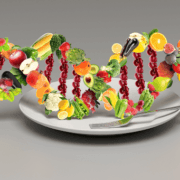Genetic Testing: Your Companion for Your Healthy Future
Genetic testing what is all about?
Genetic testing is a type of test that identifies changes in genes, chromosomes. With the advancement of DNA sequencing technologies, this has become a cutting-edge technique to detect several metabolic disorders.
Hey but first let’s understand what DNA and genes do in your body:

DNA: DNA is the building block of life and is a double-helix molecule. In your body, DNA is tightly coiled up into chromosomes. Chromosomes contain genes, which are the blueprint for all living things.
DNA is the code for our entire human genome. It is made up of four chemical bases: adenine (A), guanine (G), cytosine (C), and thymine (T). The average human has 3 billion bases and 99% are the same.
What does DNA do?
DNA contains the instructions needed for an organism to develop, survive and reproduce. To carry out these functions, DNA sequences must be converted into messages that can be used to produce proteins, which are the complex molecules that do most of the work in our bodies.
DNA contains the instructions to make a living being. To survive and reproduce, DNA needs to be converted into messages that can be used to produce proteins, which are complex molecules that do most of the work in our body.
Next, information in the mRNA molecule is translated into amino acid sequences. This language tells the cell’s protein-making machinery how to link amino acids in a specific order to produce the protein.
Genes: A gene is a piece of DNA that tells the body how to make a protein. A gene is often between 1000 and 1 million base pairs long, but they can be significantly smaller or much larger, and they usually make up only about 1% of the DNA sequence. The rest of the DNA sequence is about regulating when, how, and how much of a protein is made.
Every person has two copies of each gene, one from their mother and one from their father. Most genes are the same in everyone, but only a few genes (less than 1 percent of the total) are different. These small differences create your unique physical features.
What is the function of a Gene?
Genes decide almost everything about a living being. One or more genes can affect a specific trait. Genes may interact with an individual’s environment too and change what the gene makes.
Genes affect hundreds of internal and external factors, such as whether a person will get a particular color of eyes or what diseases they may develop.
Gene variation is generally termed as SNP (Single Nucleotide Polymorphism)
What are gene variations or SNP?

SNP is a DNA sequence variation that occurs when a single nucleotide (Adenine [A], Thymine [T], Cytosine [C], or Guanine [G]) in the DNA sequence is altered and the particular alteration is present in at least 1% of the population.
Why SNPs are important?
Multiple research studies have identified SNPs across our genes that are responsible to cause metabolic like body weight, food intolerance, stress, and susceptibility to environmental factors such as toxins. SNPs can also be used to track the inheritance of disease genes within families and ethnicities. The presence of such SNPs can help to determine the risk of developing a metabolic conditioner disorder. Once the associated risk with an SNP or set of SNPs linked to a condition is identified mitigation or intervention could be applied to reverse the effect of variations.
These SNPs are tracked down with the help of genetic testing. It helps to detect problems causing gene variations.
Genetic testing and how it works?
Genetic testing is a type performed in a modern laboratory to identify changes in your DNA or genes. Genetic test results can confirm or rule out suspected genetic variations to determine a person’s risk of developing a health issue or disorder. More than 80k genetic tests are currently in use, and others are being developed.
Genetic testing involves looking for changes in:
Genes: Genetic testing is a way of looking for changes in DNA. It can be done on a small scale (analyzing a single nucleotide) or on a broader scale (studying an entire genome). Analysis can involve identifying variations in genes that can cause or increase the risk of a genetic disease or disorder.
Chromosomes: Chromosomal genetic tests analyze the length of DNA to look for genetic changes that can cause a condition. These genetic changes can include an extra copy of a chromosome, which can result in a genetic condition.
Proteins: Biochemical genetic tests look at proteins or enzymes to check for any abnormalities that may indicate a change in DNA. This can result in genetic disorders.
Know how it’s done?
Genetic tests are performed on hair, skin, amniotic fluid, blood, or other tissues. These tests are usually done by collecting cells from the inside of your cheek with a small brush or cotton swab. These samples are then sent to a laboratory where technicians compare them with a database of known genetic variant
A laboratory will produce a detailed report about the test results and send it to the client or their doctor or genetic counselor.
Why do genetic testing? How can genetic testing help?
Genetically testing your genes can have benefits, no matter what the result might be. This kind of testing can provide relief from uncertainty and allow people to make informed decisions about their health care. For example, a negative result might eliminate the need to undergo unnecessary check-ups or screenings in some cases.
It boils down to the fact that genes play a vital role in our well-being. A DNA test can help determine our risk for various conditions, such as obesity, early wrinkling, sensitivity to UV light or chemical sensitivities.
Applications of Genetic Testing for Well-being
DNA testing can help in many spears of day-to-day life and provides valuable insights to manage nutrition, weight, fitness, skincare, haircare, mental health, and diseases. DNA testing provides great insights about your genetic risk towards specific conditions that can help provide personalized care and lifestyle changes for better lifestyle management.
Here are some of the key lifestyle DNA tests that one can use to improve well-being:
- DNA Analysis & Testing for Weight Management & Weight Loss
We all know that diets don’t work on some individuals, but why? It’s because of our DNA. Much of our success in losing weight and staying healthy is based on genetics, and not just the food we eat. DNA testing can help you understand your diet and exercise. DNA testing for weight loss makes it possible to choose a diet plan that will have the greatest benefit for each person.
- DNA Analysis & Testing for Nutritional Balance & Diet Plan
Genetic predisposition and environment can both influence your susceptibility to allergies. Genetic testing helps to filter out what food suits you best and is gut-friendly. Gene testing also helps you to discover your major nutrient deficiency risk this helps you to customize your diet with precision for your optimal fitness.
- DNA Analysis & Testing for Skin Care & Skin Problems Management
DNA Skin test provides comprehensive, personalized genetic insights into your skin type and your risk of premature aging, sun damage, allergies, and more. This helps you to understand what product dietary nutrition suits your ever-growing skin.
- DNA Analysis & Testing for Hair Care & Hair Loss Management
Gene testing for Hair loss helps any individual who would like to understand their risk of hair loss, thinning, or premature greying. DNA test identifies your risk of premature hair loss, greying, and thinning due to genetic factors, nutritional deficiencies, and stress.
Have a look at our products with consent links:
- GeneFit – GeneFit provides a 360 degree personalized genetic insight about your lifestyle and fitness risks that include – the risk of extreme weight gain or loss, nutritional deficiencies, food sensitivities, optimal physical activities, sleep, and stress. Click here to read more about GeneFit test.
- NutriLife – NutriLife DNA test identifies your nutritional requirements of vitamins and minerals based on your genetic profile. NutriLife DNA test report provides personalized recommendations for nutrient intake by including recommended food sources in your diet. Your food allergies or sensitivities along with taste perception are also identified to maximize health benefits. Click here to read more about NutriLife test.
- FitLife – FitLife DNA test identifies your fitness attributes – the optimal type of exercise, aerobic capacity, and injury risk for you to achieve desired fitness level. Discover genetic insights in your DNA that can transform your choice of workouts and training for optimal fitness. Click here to read more about the FitLife test.
- HairLife – HairLife DNA test identifies your risk of premature hair loss, greying and thinning due to genetic factors, nutritional deficiencies and stress. HairLife DNA test identifies the specific type of hair issues that you are suitable for and recommends preventive action to keep your hair healthy and nourished. Your personalized DNA report provides recommendations for hairstyles, nutrition recommended supplements, and hair care products. Click here to read more about the HairLife test.
- SkinLife – SkinLife DNA test provides comprehensive, personalized genetic insights into your skin type and your risk of premature aging, sun damage, allergies and more. Click here to read more about SkinLife test.
For you queries and questions visit our FAQ section, or contact our experts for personalized plans and recommendations.













Leave a Reply
Want to join the discussion?Feel free to contribute!